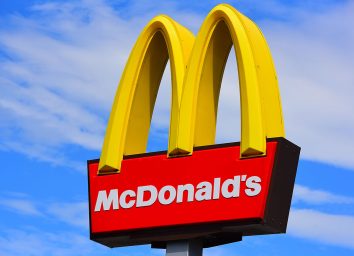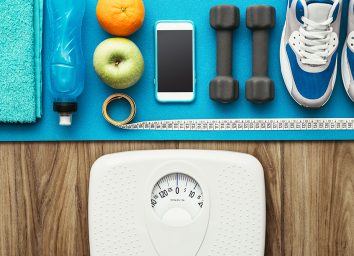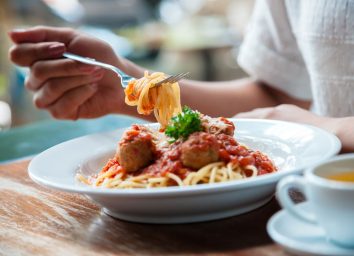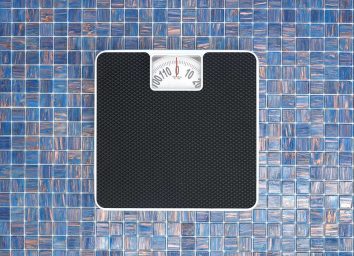25 Food Myths Preventing You From Losing Weight

It’s no secret that here at Eat This, Not That!, we spend a lot of time unmasking health imposters. And the truth is, the superpowers of kale, like the dangers of the Bermuda Triangle, have been highly exaggerated. Sure, it’s good for you, but the ranking of kale as our greatest green is just one of many word-of-mouth myths that drive our nutritional decision-making, often in the wrong direction. Much of what we believe about food is really just hearsay, a game of nutritional telephone handed down from science journals to newspapers to television to your aunt to your mom and then to you, with marketers in between.
Well, we went ahead and tracked down the truth. Learn how to separate fact from fiction and you might finally shed the habits that are silently sabotaging your weight loss efforts.
Here are 25 food myths that could be doing you more harm. And after you uncover these, check out the 15 Underrated Weight Loss Tips That Actually Work.
Myth: Kale is our healthiest green.
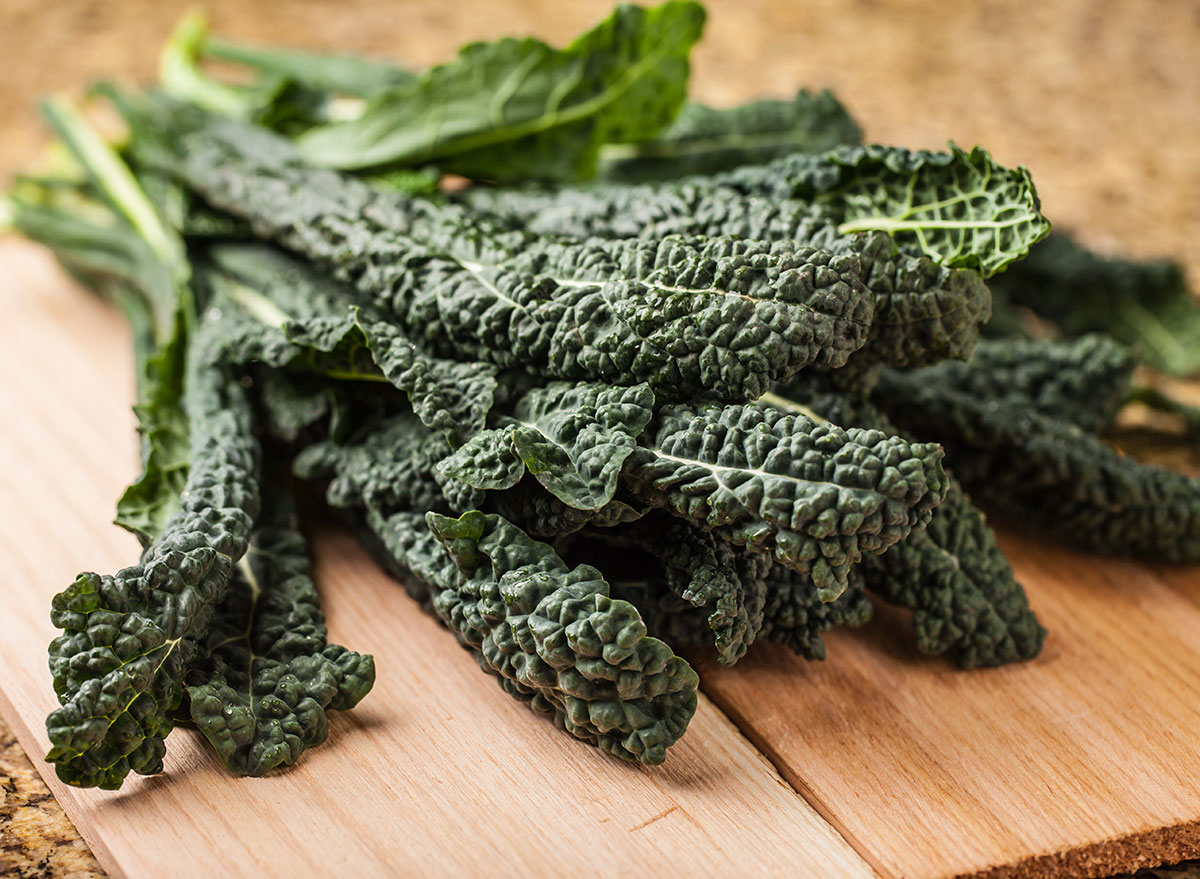
A 2014 study at William Paterson University ranked fruits and vegetables by their nutrient density, based on their levels of 17 different nutrients that have been linked to improved cardiovascular health. Not surprisingly, the top 16 were all leafy greens, which pack the most nutrition per calorie. (Coming in at #17 was red bell peppers.) But kale didn’t even make the top 10. In fact, simple spinach and even Romaine lettuce beat the alleged supergreen, as did parsley and chives. Even stuff you normally throw away—the greens atop beets—pack more nutrition.
Myth: High fructose corn syrup is worse than table sugar

Sugar is the master of disguise, according to research in Zero Sugar Diet. Maltodextrin, brown rice syrup, dextrose, sucrose—it’s got more alter egos than the Avengers. But it’s most well known costume is High Fructose Corn Syrup. Whether HFCS is worse than plain ol’ table sugar has long been a contentious issue. Here’s what you need to know: In a 2014 review of five studies comparing the effects of sugar and HFCS, there was no difference found in changes in blood glucose levels, lipid levels, or appetite between table sugar consumption and HFCS consumption. In other words, your body can’t tell one from the other—they’re both just sugar. HFCS’s real sin is that it’s super cheap, and as a result, it’s added to everything from cereal to ketchup to salad dressing. Is it a good idea to minimize the HFCS in your diet? Absolutely. It’s best to cut out all unnecessary sugars.
Myth: Sea salt is a healthier version of regular salt.
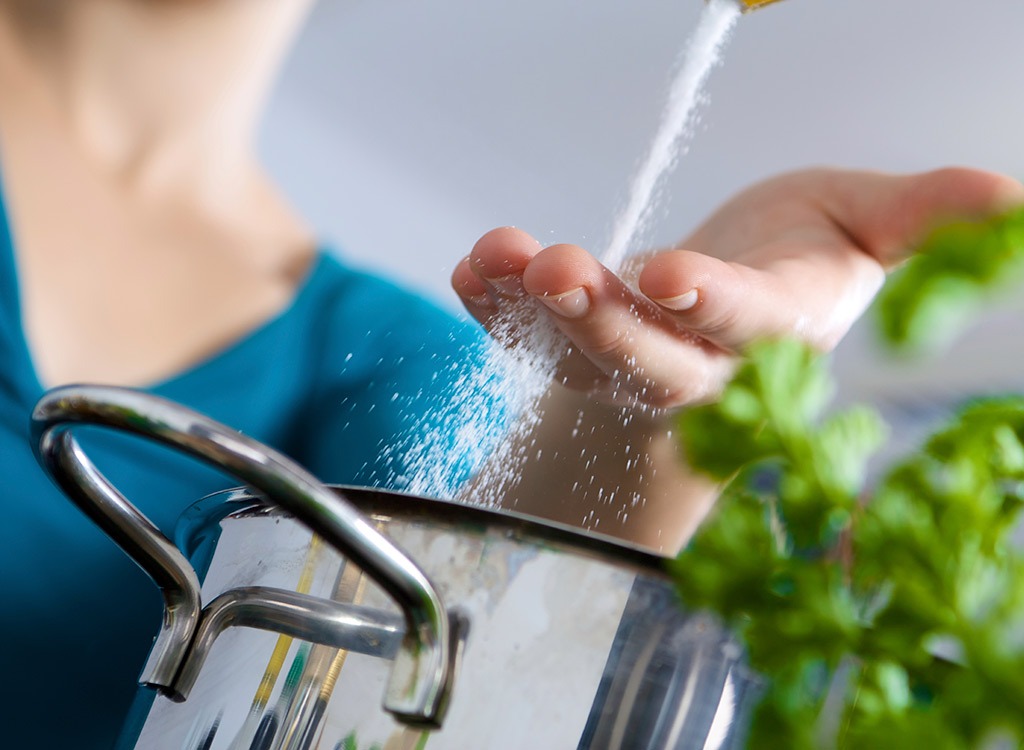
Everyday table salt comes from a mine and contains roughly 2,300 milligrams of sodium per teaspoon. Sea salt comes from evaporated seawater, and it also contains roughly 2,300 milligrams of sodium. That makes them, well, roughly identical. Advocates point to the fact that sea salt also contains other compounds like magnesium and iron, but in truth, these minerals exist in trace amounts. To obtain a meaningful dose, you’d have to take in extremely high and potentially dangerous levels of sodium. What’s more, traditional table salt is regularly fortified with iodine, which plays an important role in regulating the hormones in your body. Sea salt, on the other hand, gives you virtually zero iodine. The bottom line is this: If switching from table salt to sea salt causes you to consume even one extra granule, then you’ve just completely snuffed out whatever elusive health boon you hope to receive. Plus you’ve wasted a few bucks.
Myth: Energy drinks are less harmful than soda.
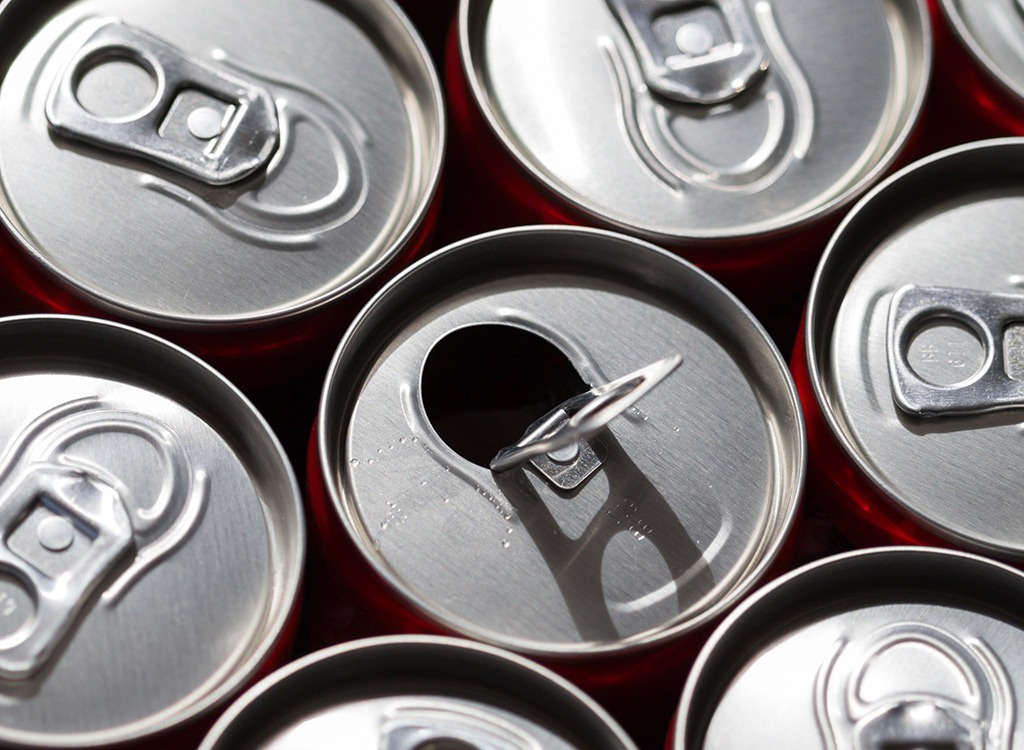
Energy drinks like Red Bull, Monster, and Full Throttle attempt to boost your energy with a cache of B vitamins, herbal extracts, and amino acids. But what your body’s going to remember most (especially around your waistline) is the sugar in these concoctions; a 16-ounce can delivers as much as 280 calories of pure sugar, which is about 80 calories more than you’d find in a 16-ounce cup of Pepsi. What’s more, a University of Maryland study found energy drinks to be 11 percent more corrosive to your teeth than regular soda. So here’s the secret that energy drink companies don’t want you to know: The only proven, significant energy boost comes from caffeine. If you want an energy boost, save yourself the sugar spike and drink a cup of coffee. (A cup of black joe: 5 calories. Make this swap once a day and lose nearly 29 pounds this year!)
RELATED: 101 Unhealthiest Habits on the Planet
Myth: Diet sodas help keep you slim.
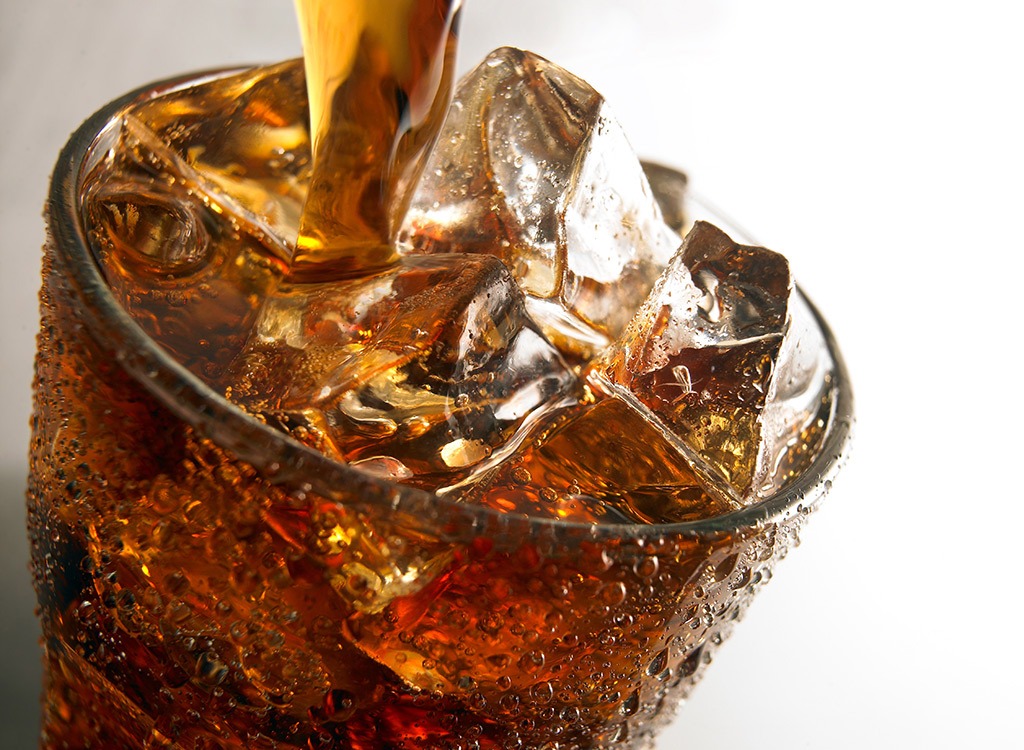
The obesity-research community is becoming increasingly aware that the artificial sweeteners used in diet soda lead to hard-to-control food urges later in the day. Try weaning yourself off by switching to carbonated water and flavoring with lemon, cucumber, and fresh herbs.
A study in the American Journal of Public Health found that more obese adults drink diet soda than healthy-weight adults and that, among the overweight and obese adults studied, those who drank diet soda ate more calories than those who consumed sweetened/regular soda. Researchers have also linked regular diet soda consumption with decreased response to artificial sweeteners and a decreased link between sweet tastes and energy value, meaning their bodies may grow to disassociate sweetness with satiety cues, making it easier to overeat and, therefore, gain weight.
Myth: Yogurt is good for the bacteria in your belly.

Sure, some yogurts contain beneficial bacteria that can send reinforcements to your gut when you need them. Lactobacillus acidophilus is the bacteria you want to look for, with yogurts that say “live active cultures.” But most yogurts are so high in sugar that they do more to promote unhealthy gut bacteria than anything else. (Unhealthy bacteria feed on sugar in your belly the same way they do around your teeth.)
Myth: Low-fat foods are better for you.

As it applies to food marketing, the term “low fat” is synonymous with “loaded with salt and cheap carbohydrates.” For instance, look at Smucker’s Reduced Fat Peanut Butter. To replace the fat it skimmed out, Smucker’s added a fast-digesting carbohydrate called maltodextrin. That’s not going to help you lose weight. A 2008 study in the New England Journal of Medicine found that over a 2-year span, people on low-carb diets lost 62 percent more body weight than those trying to cut fat. (Plus, the fat in peanut butter is heart-healthy monounsaturated fat—you’d be better off eating more of it, not less!)
Myth: “Trans-fat free” foods are actually trans-fat free.
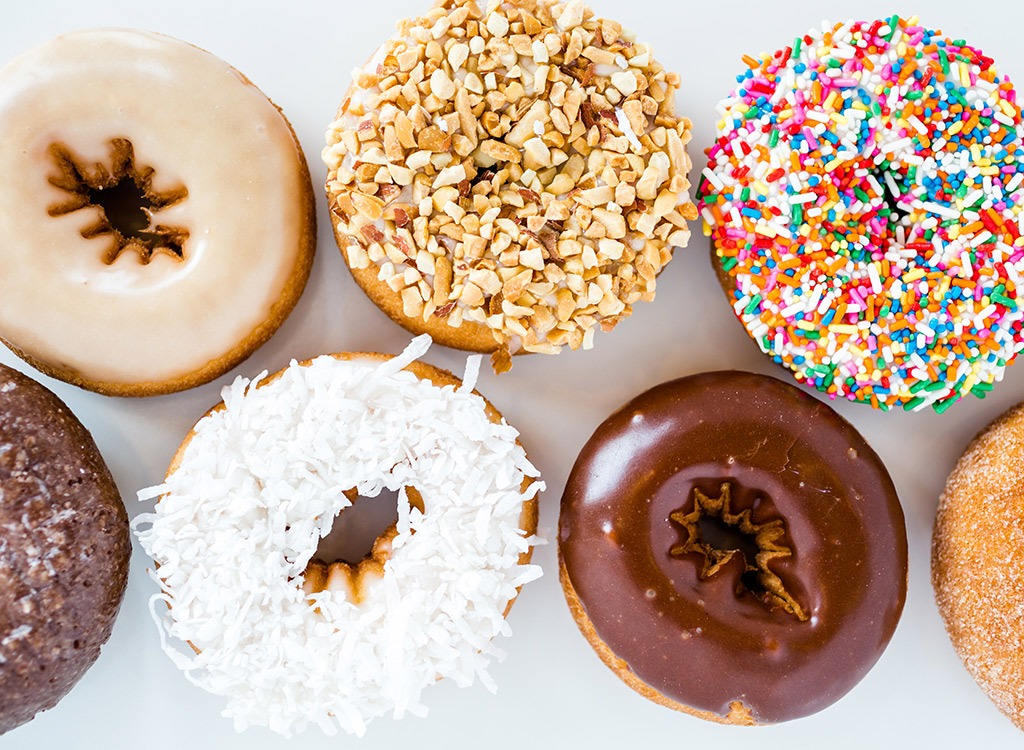
The FDA’s guidelines allow companies to claim 0 grams of trans fat—even broadcast it on the front of their packages—as long as the food in question contains no more than 0.5 grams of trans fat per serving. But here’s the deal: Due to an inextricable link to heart disease, the World Health Organization advises people to keep trans fat intake as low as possible, maxing out at about 1 gram per 2,000 calories consumed. If your cupboard’s full of foods with almost half a gram per serving, you might be blowing past that number every single day. The American Journal of Health Promotion recently published an article urging the FDA to rethink its lax regulations, but until that happens, you should avoid all foods with “partially hydrogenated oil” (meaning, trans fats) on their ingredients statements. Trans fat is lurking in places you might not expect, too.
Myth: Foods labeled “natural” are healthier.
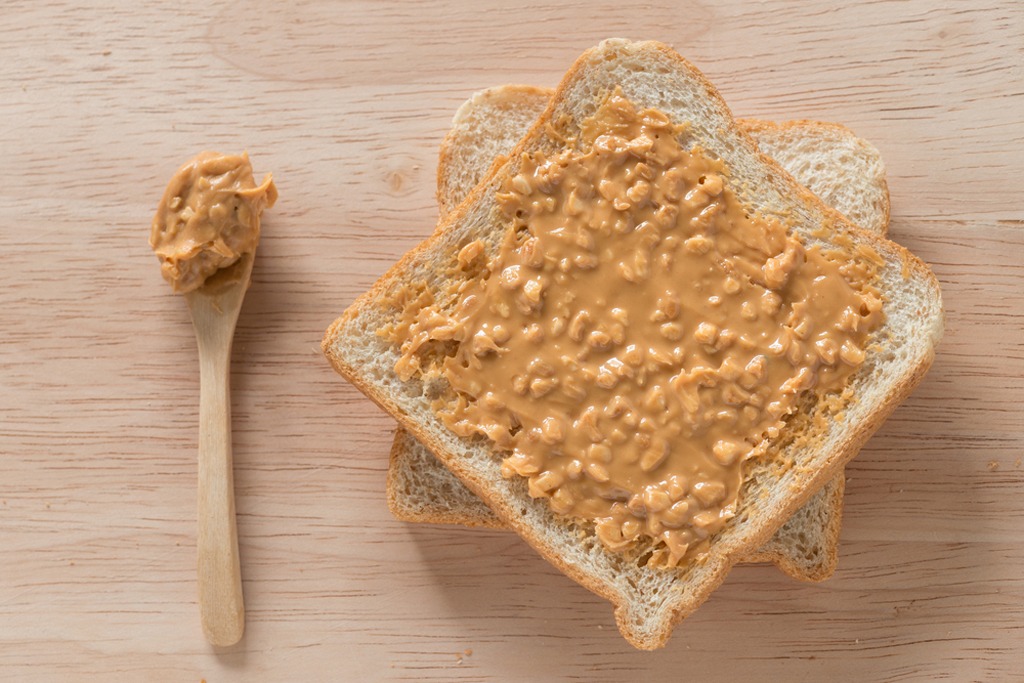
The FDA makes no serious effort to control the use of the word “natural” on nutrition labels. Case in point: 7UP boasts that it’s made with “100% Natural Flavors” when, in fact, the soda is sweetened with a decidedly un-natural dose of high fructose corn syrup. “Corn” is natural, but “high fructose corn syrup” is produced using a centrifuge and a series of chemical reactions. And the “natural advantage” Post Raisin Bran, which bathes its raisins in both sugar and corn syrup. The worst part is, you’re likely paying a premium price for common junk food.
Myth: Egg yolks raise your cholesterol.
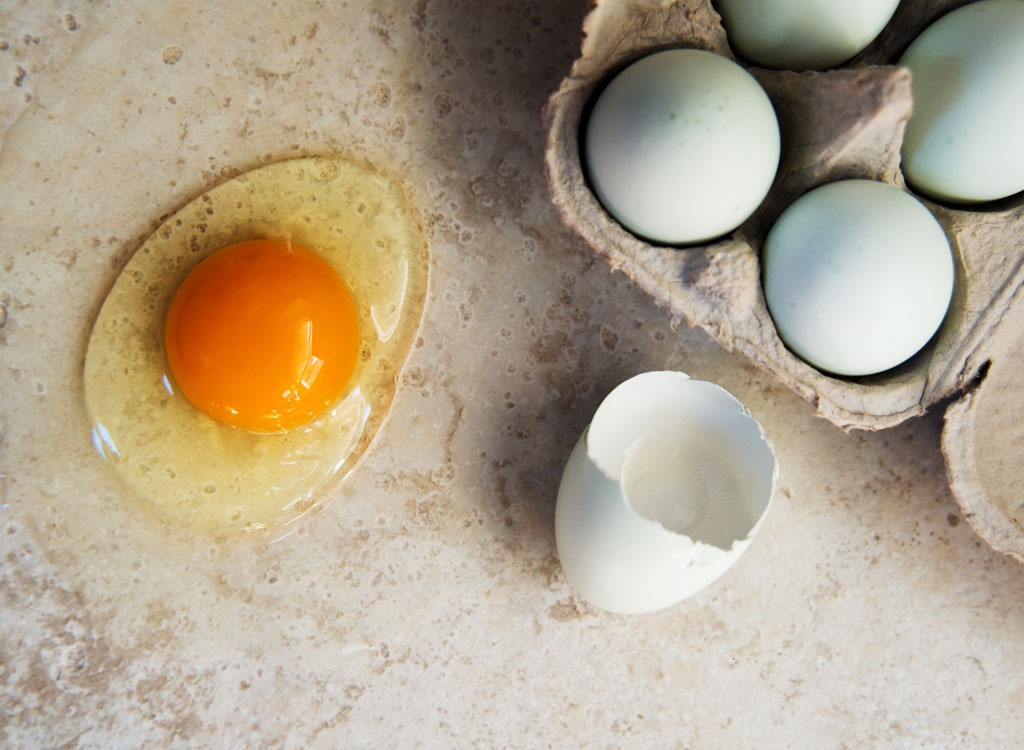
Egg yolks contain dietary cholesterol; this much is true. But research has proven that dietary cholesterol has almost nothing to do with serum cholesterol, the stuff in your blood. Wake Forest University researchers reviewed more than 30 egg studies and found no link between egg consumption and heart disease, and a study in Saint Louis found that eating eggs for breakfast could decrease your calorie intake for the remainder of the day.
Myth: You can eat whatever you want if you work out.
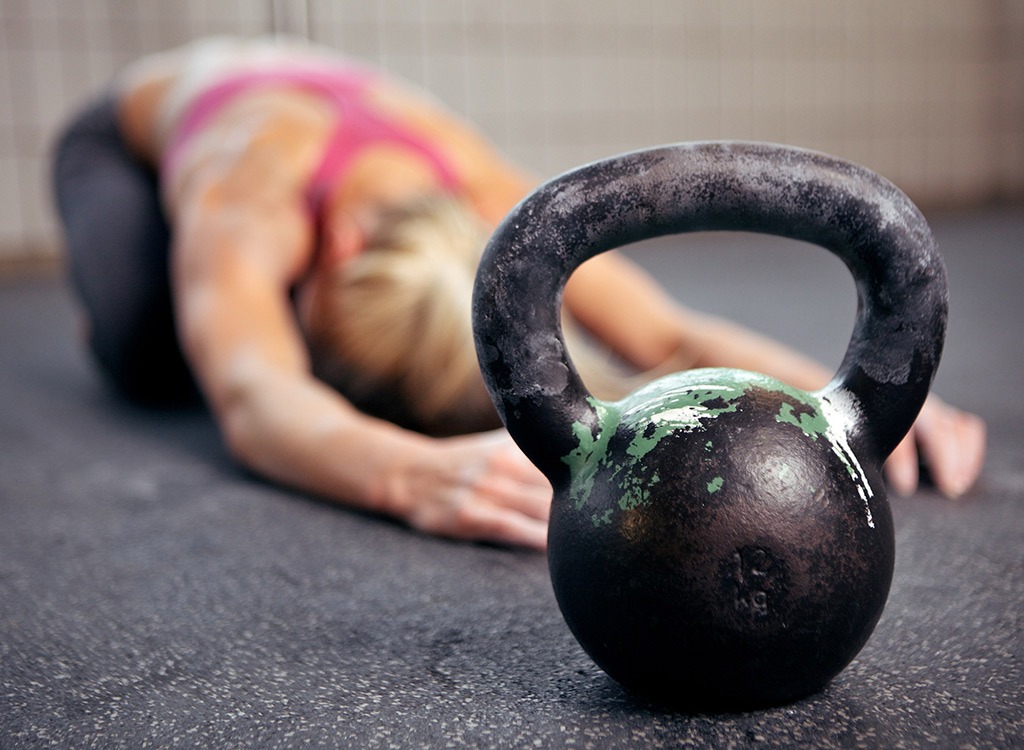
Unfortunately, a half-hour trot on the treadmill isn’t going to help you lose weight if you reward yourself by downing a few slices of cake and an order of French fries. The bottom line: It’s near impossible to out-exercise a bad diet unless you plan to spend half your day in the gym. You must work out and eat smart to see results.
Myth: You’ll burn more fat if you don’t eat before a workout.

Without the proper fuel, you won’t be able to work out for as long or hard as you need to if you want to see a difference in your body. What’s worse, fasted workouts can cause low blood sugar and lightheadedness, which can be dangerous when you’re breaking a sweat. Plus, when you’re running on fumes, you’re going to be ravenous after your workout. That means you’ll be more apt to make poor diet decisions—like downing an entire pizza—after you get home.
Myth: Going Paleo guarantees weight loss.
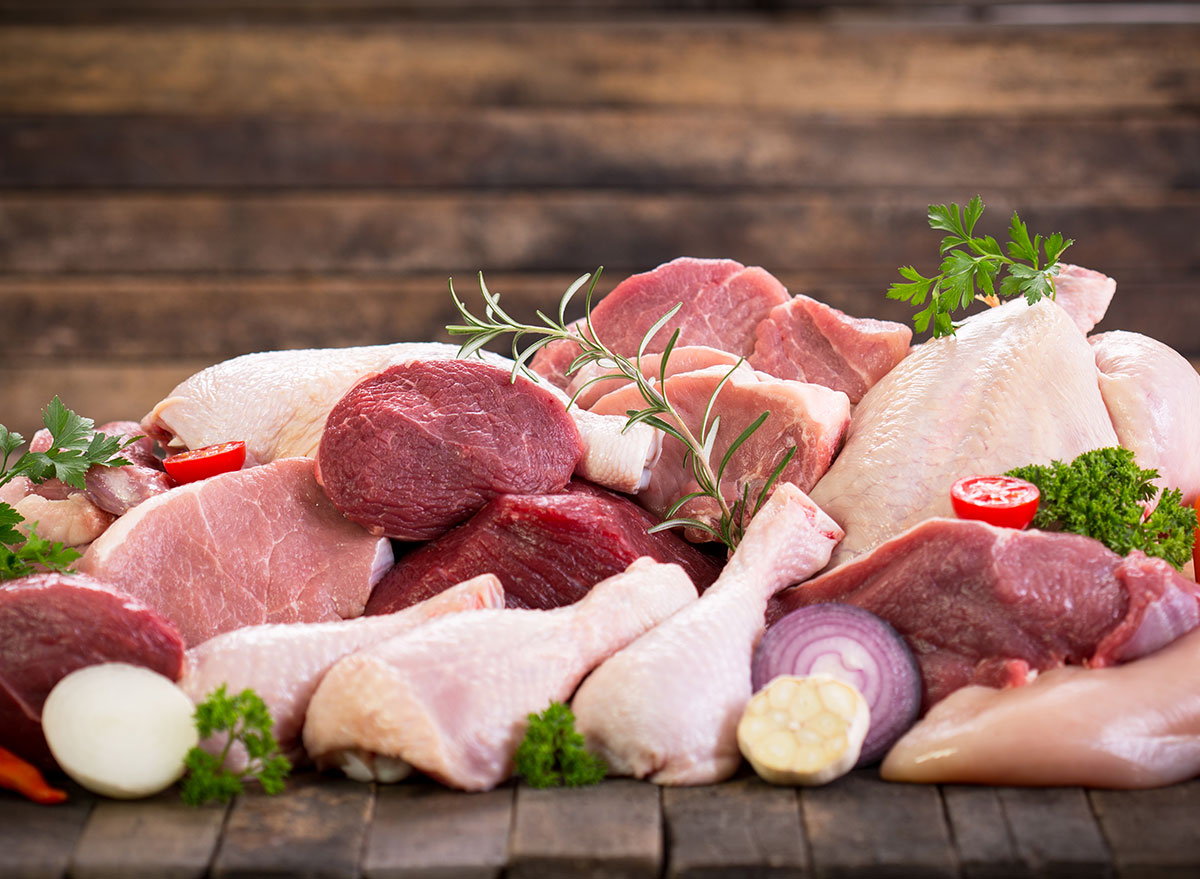
It’s no shocker that Paleo is one of the most-Googled diets in recent years. Bacon and steak for weight loss? Yes, please! But the Paleo diet is indeed too good to be true. Although protein-rich diets help pounds fly off initially, eating a low-carb, high-protein diet can actually cause weight gain in the long-term, say Spanish researchers. In fact, their study findings revealed that those who follow high-protein diets have a 90 percent greater risk of gaining more than 10 percent of their body weight over time than those who don’t go heavy on the meat. To reap the weight-loss benefits of the Paleo diet—without paying for it later—nix the processed junk and oils as the diet suggests, but keep the protein in check. Take in more than the recommended amount and the excess will likely be stored as health-harming fat.
Myth: All calories are created equally.
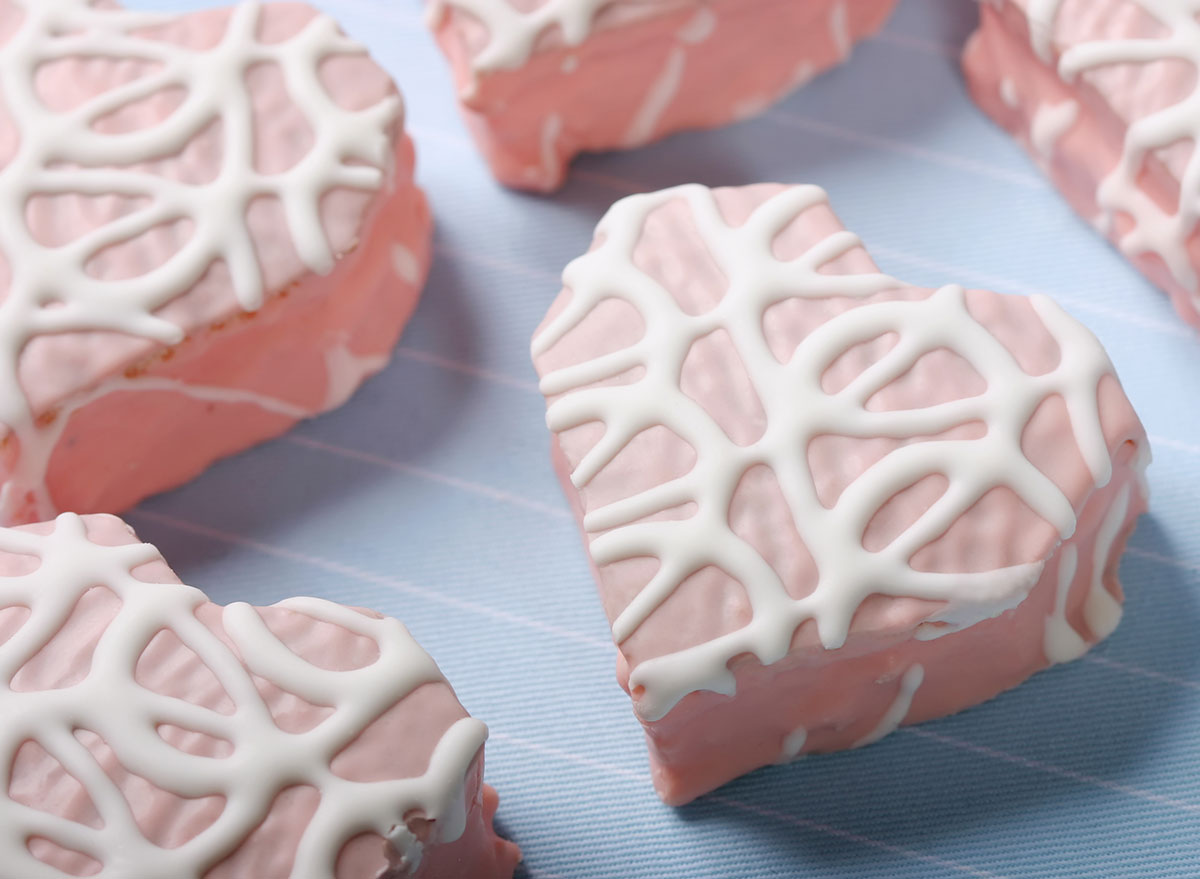
Eating 300 calories of chicken is not the same as eating 300 calories of cake. The body uses and stores calories differently depending on the nutrients each food is comprised of. Corn and beans, for example, contain something called resistant starch, a type of carb that is really hard to digest. In turn, the body isn’t able to absorb as many of the calories or as much of the glucose—a nutrient that’s stored as fat if it’s not burned off. It’s a similar story with lean-protein sources like turkey, chicken, and fish. In addition to boosting satiety, protein also has a high thermogenic effect compared to fats and carbs. In turn, your body burns off a fair percentage of the meat’s calories during the digesting process, and post-meal calorie burn spikes by as much as 35 percent! Your favorite cookies can’t make that same claim. In fact, since the majority of sweet treats’ calories come from sugar, getting too many of your calories from desserts can leave you hungry, fat, and–you guessed it–frustrated.
Myth: You can’t eat at night if you want to lose weight.

Eating too many calories throughout the day, not nighttime munching, causes weight gain. In fact, “eating the right type of bedtime snack actually boosts metabolism and aids weight loss—not the opposite!” explains Cassie Bjork, RD, LD of Healthy Simple Life. “When you don’t eat before bed, blood sugar levels dip so you don’t sleep as well. In turn, you crave more sugar- and carb-laden food the next day. If this happens often enough, it can cause weight gain. On the flip side, eating the right snack can help keep blood sugars stable so the fat-burning hormone glucagon can do its job.” So what should you be eating? “I suggest pairing a natural carb with a healthy fat.” Apple slices and almond butter, berries with heavy cream, and carrots with guacamole all fit the bill.
Myth: You can eat as much as you want as long as it’s healthy.
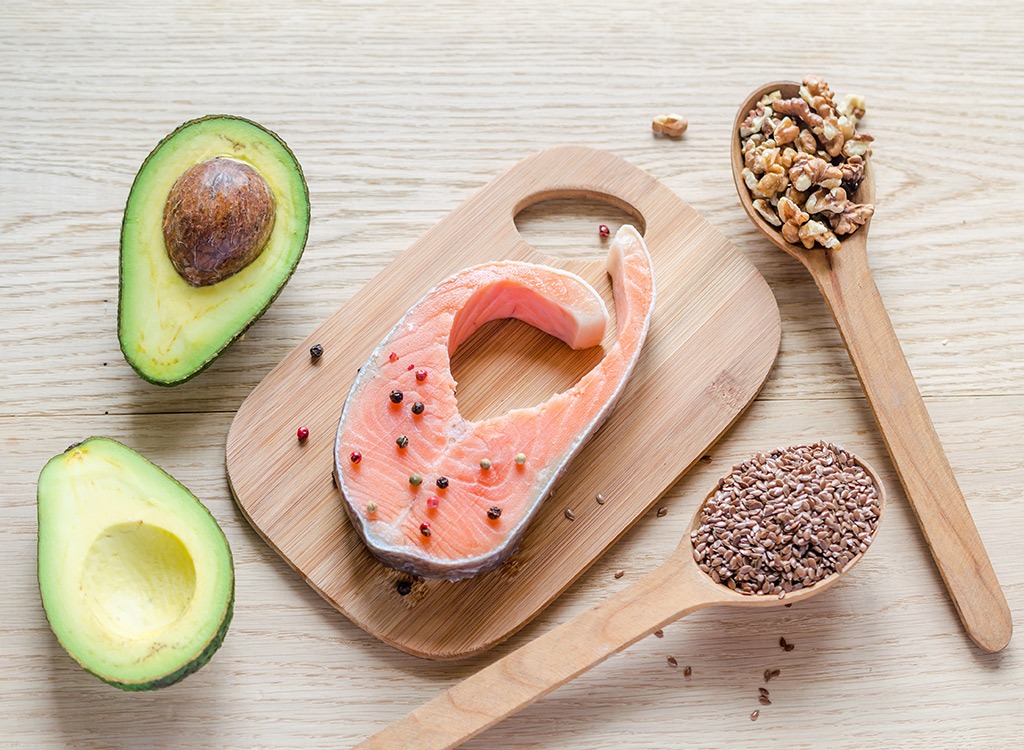
Avocados, oatmeal, nuts, and their creamy, delicious butters are indeed healthy, but low in calories they are not. Sure, you’re better off eating 200 calories of oatmeal than 200 calories of sugar-spiked cookies made with the grain, but that doesn’t give you free rein to eat as much of the stuff as you want. The bottom line: Nutritious or not, portion size counts with every food. If you find that you have trouble sticking to reasonable portion sizes for some of the more caloric healthy foods in your diet, look for portion-controlled packages. Buying mini sizes in lieu of bigger tubs of food helps keep calories in check and teaches you what a proper serving looks like.
Myth: Protein shakes and bars help you lose weight.
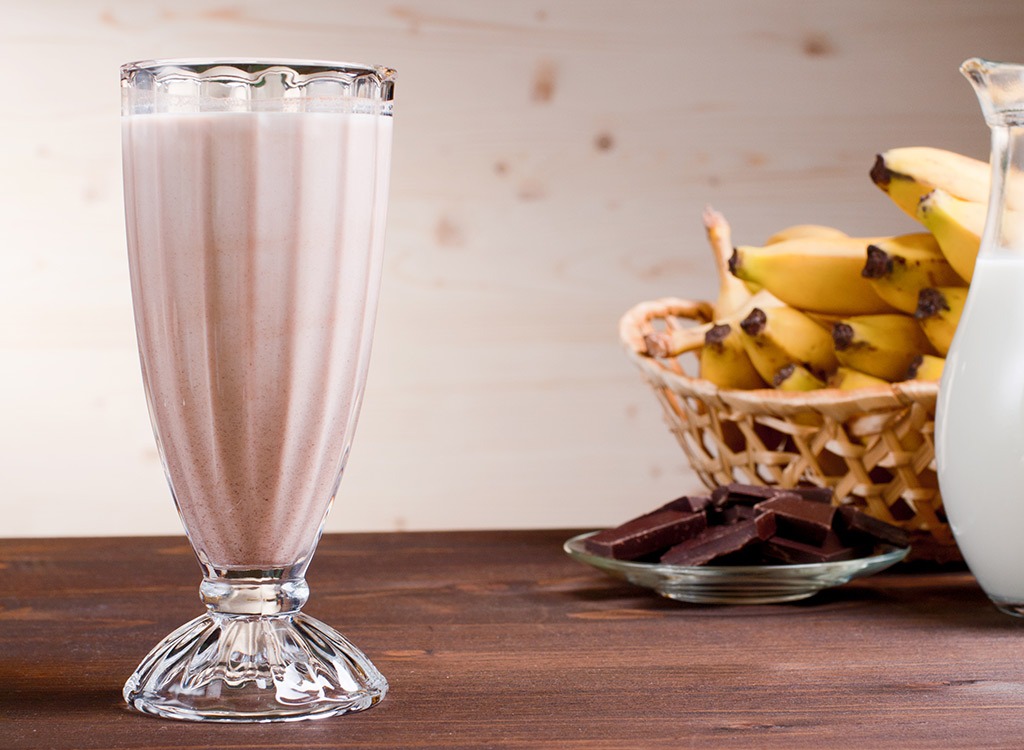
Although packaged protein products can be a part of an all-around healthy diet, they aren’t any better than a sit-down meal comprised of similar nutrients. However, depending on which bars and shakes you pick up, you could actually be putting your health at risk. Many popular products are filled with bloat-causing additives like carrageenan and whey in addition to caramel coloring, which has been shown to cause cancer in humans. A number of the pumped-up foods also use artificial sweeteners in lieu of sugar, which can increase cravings for sweet treats and cause weight gain over time. Our advice: If you want to include bars and shakes in your diet, opt for one of our Best Nutrition Bars for Weight Loss and whip up your own protein shakes at home using fresh fruits, veggies, milk or water, and a low-sugar vegan protein powder. Also, be sure you’re substituting your shake or bar for a snack or a meal—not consuming them in addition to your regular diet. This can cause weight gain, not loss.
Myth: Drinking 8 glasses of water daily guarantees weight loss.
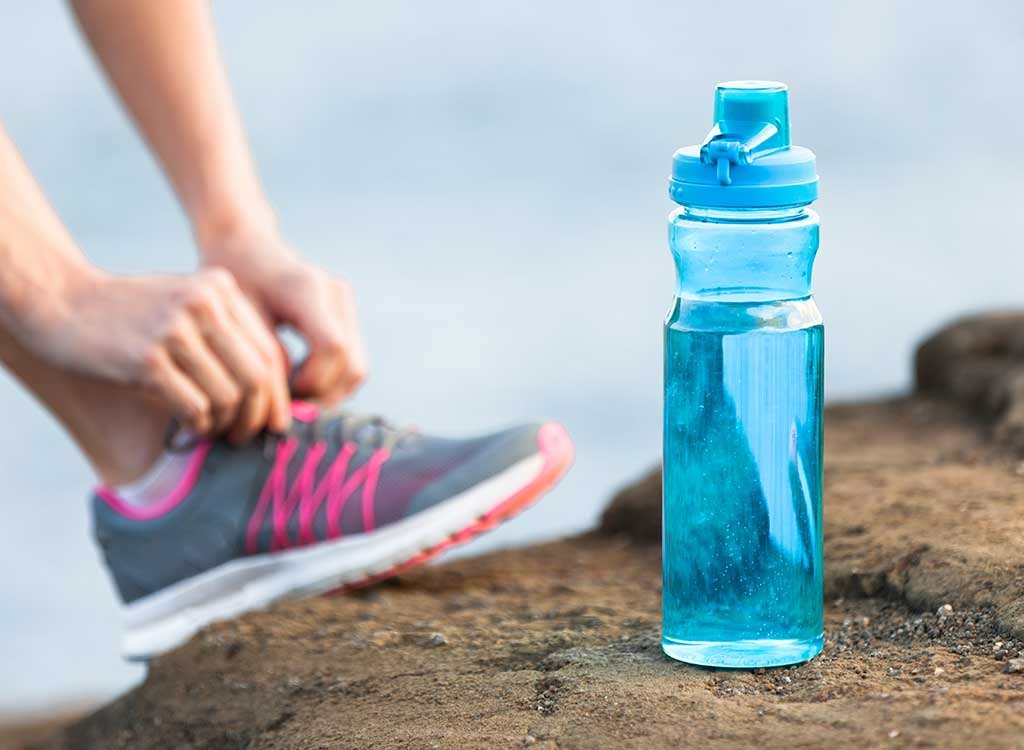
While chugging water and running to and from the bathroom go hand in hand, chugging water and weight loss do not. “Drinking water does not guarantee weight loss—especially if you’re still eating an unhealthy, high-calorie diet,” says Lisa Moskovitz, R.D., founder of Manhattan-based private practice, The NY Nutrition Group. But that doesn’t mean you should stop running to the water cooler. “Staying hydrated throughout the day is a great habit to maintain for good health, it’s just not the only change you’ll need to make for permanent weight loss,” Moskovitz adds.
Myth: Nuts are fattening.
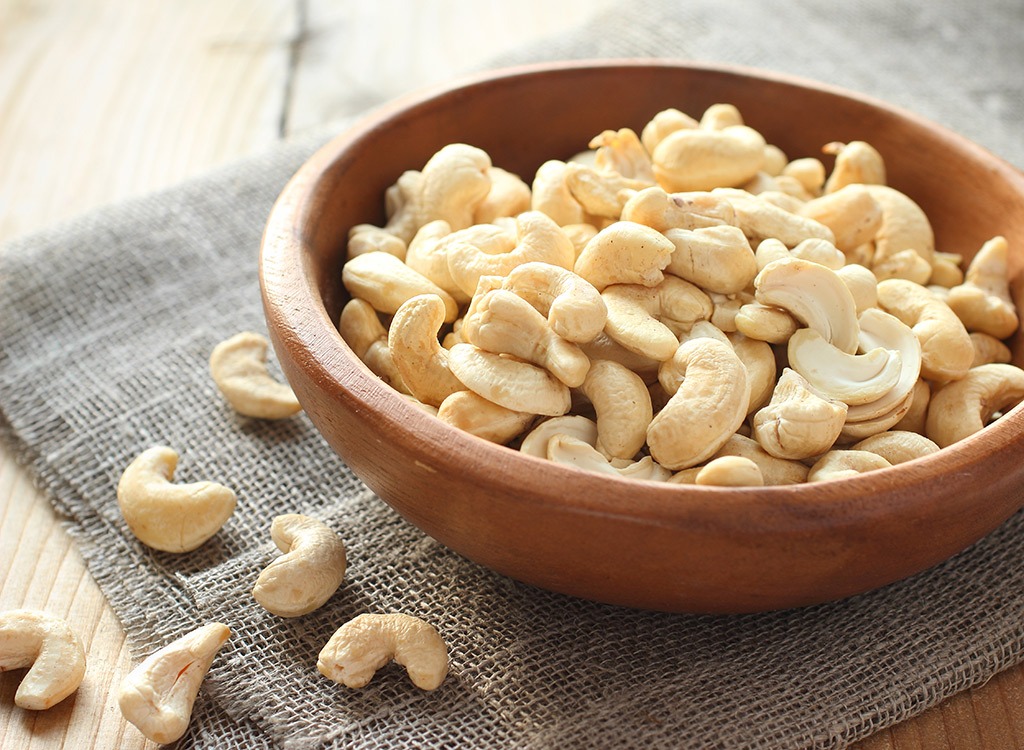
“Nuts have gotten a bad reputation for their total fat content, but nutrition science suggests that the quality—not quantity—of fat is what is most important to our health,” says Jackie Newgent, RDN, and author of The All-Natural Diabetes Cookbook.
“In fact, the FDA recently announced they are reevaluating the term ‘healthy’ as it applies to foods with good-for-you fats, like pistachios,” Newgent continues. “What’s more, foods like in-shell pistachios may help you fool yourself into feeling full because the leftover shells may provide a visual cue for portions, potentially helping to curb intake.”
Myth: Drinking beer causes a beer belly.
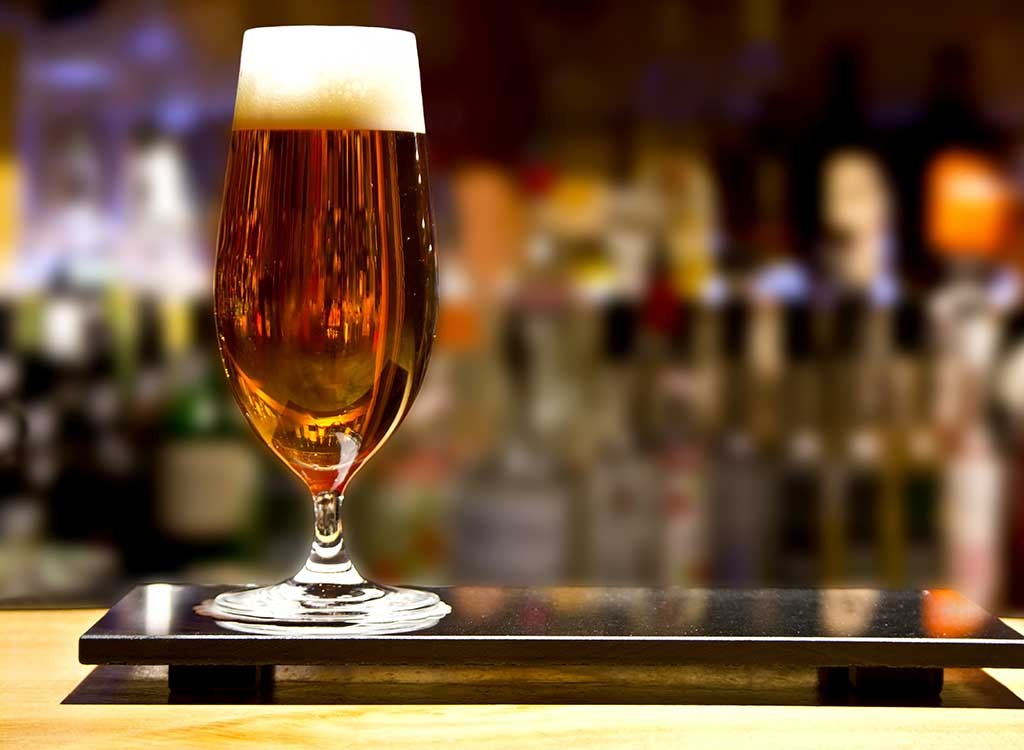
While beer consumption doesn’t tend to help shrink your waist, a beer belly isn’t necessarily caused by beer; it’s more likely caused by consuming too many empty calories.
“Although, if you enjoy guzzling six-packs on a regular basis, then you do need to reconsider your beer-drinking habits,” cautions Newgent.
Myth: Comfort food chases away the blues.

A bowl of tomato soup and a grilled cheese sandwich on a cold winter’s day. A big spoonful of mac and cheese when you’re down on your luck. Comfort food just makes you feel better, doesn’t it?
Actually, it doesn’t. In a 2014 study in the journal Health Psychology, aptly titled “The Myth of Comfort Food,” researchers showed participants depressing films to “induce a negative effect.” Then they gave them either comfort food, foods that weren’t considered comfort foods, or no food at all. Result: The subjects got over their bad moods in equal time, regardless of whether or not they ate. Is feeling bad a good excuse for eating bad? Turns out, it’s not.
Myth: Peanut butter is a health food.
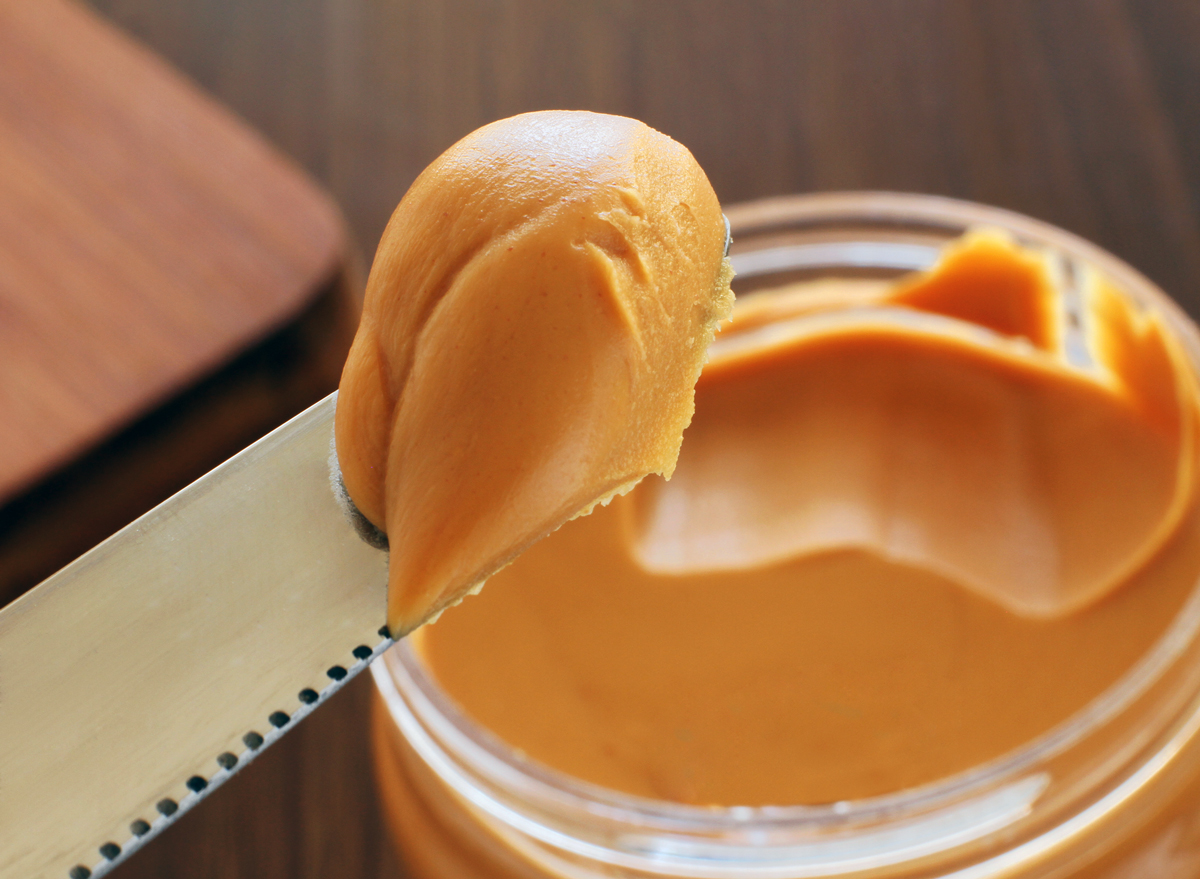
In its best form, peanut butter actually is a health food. That’s because peanuts are packed with monounsaturated fats, the heart-healthy fat that actually helps you lose weight. Here’s what the ingredients of a healthy jar of peanut butter should read:
Peanuts.
But most peanut butter doesn’t look like that. Most peanut butters are highly processed and loaded with sugars and trans-fatty oils, and contain less of the healthy monounsaturated fats that you truly need. “Peanut butter spread” is even worse. The word “spread” indicates that it’s at least 10 percent additives. Look for “natural” peanut butter and don’t be fooled by any low-fat promises.
Myth: “Multi-grain” and “wheat” breads are better than white bread.
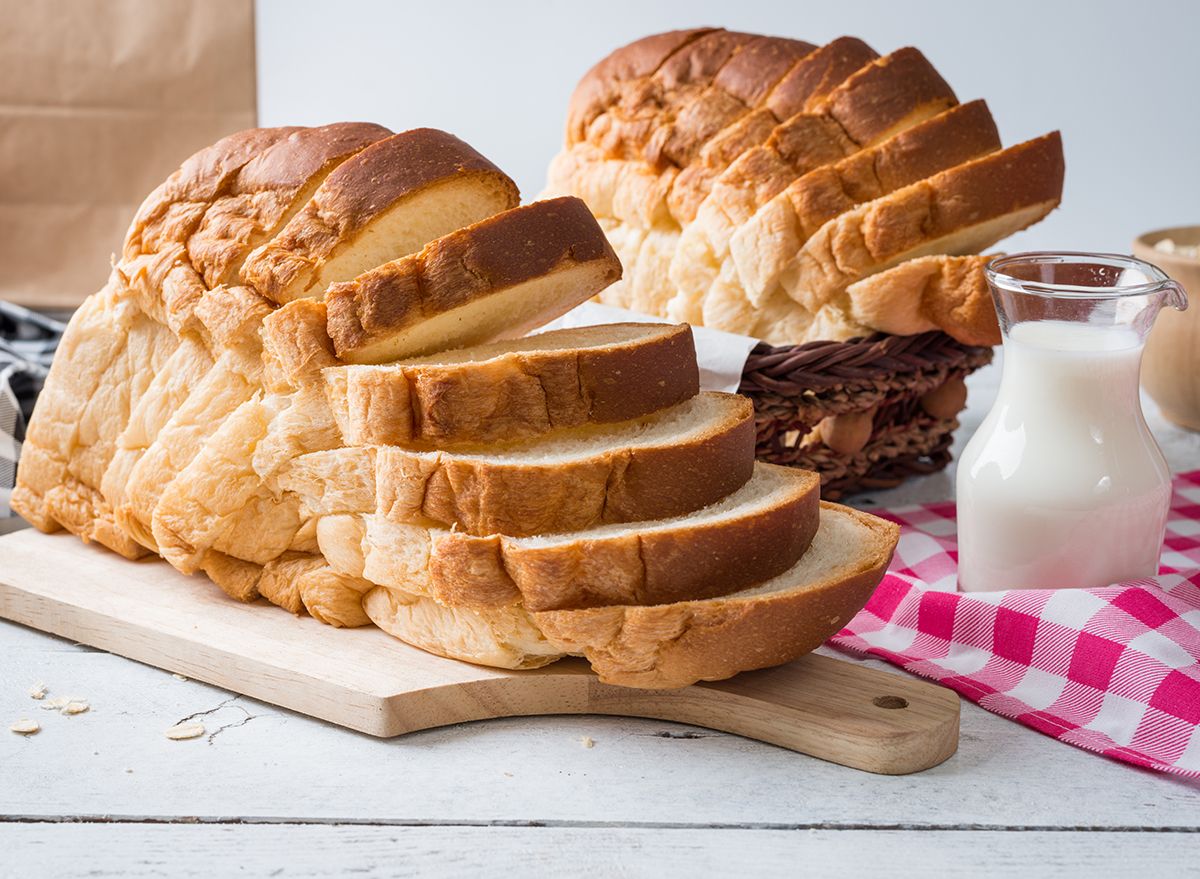
Wait a minute—isn’t “multi-grain” one of the biggest buzzwords in nutrition? And haven’t we been trained to pick the wheat bread over the white at every turn? Yes, but unfortunately those labels are about as credible as your local congressman’s campaign promises. “Wheat bread” is generally white bread with caramel or molasses added to make it look dark and healthy. “Multi-grain” just means that different kinds of junky refined grains may have been used. Always look for the words “100 percent whole wheat” or “100 percent whole grain” on the package.
Myth: Wraps are healthier than regular sandwiches.
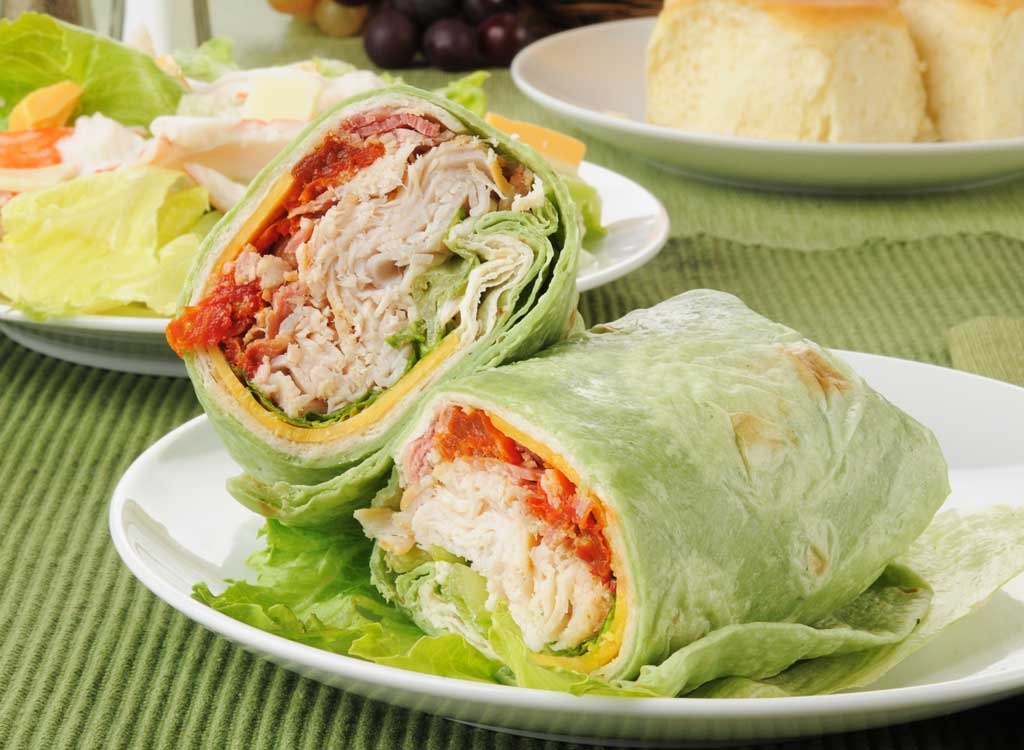
Those skinny little wraps are so flimsy, so delicate, so fusion-cuisine friendly. How can they not be better than the average lump of bread? Well, consider Subway’s wrap, for one. It packs 310 calories—before you even add the first whiff of meat or sauce. The reason is that, in order for the tortilla to wrap around like that, it needs added fat, often in the form of soybean oil and hydrogenated oils. (In fact, when ordering Mexican food, you’re usually better off with a hard taco than a soft, for the same reason.)
Myth: Potatoes are empty carbs.
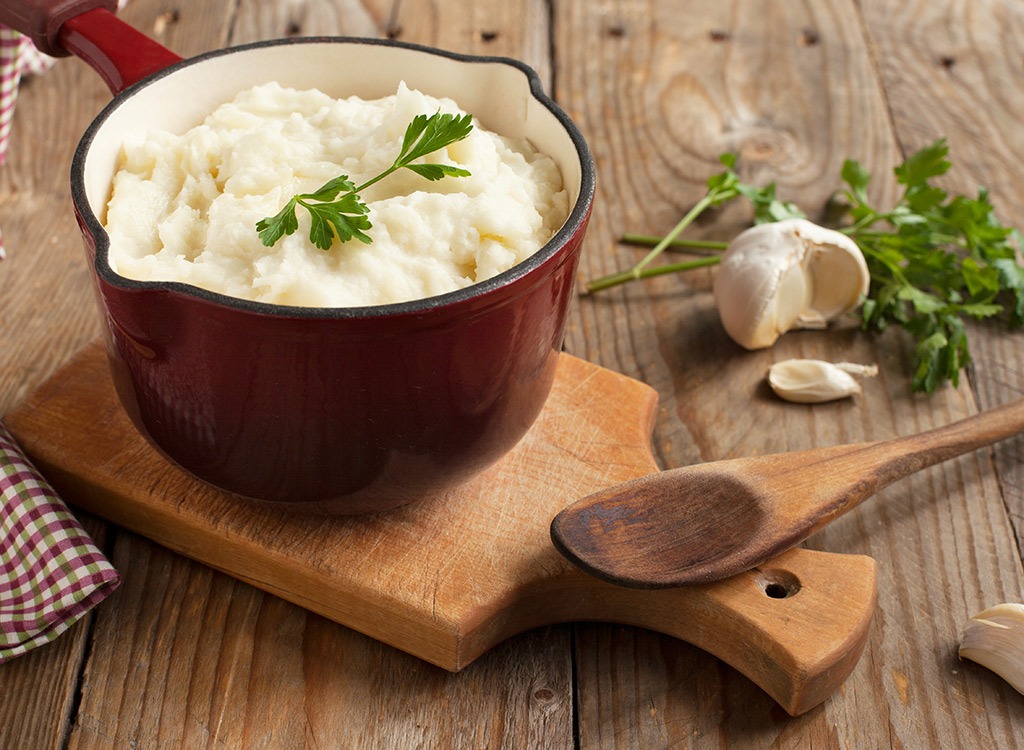
Once the proud spud stud of the American dinner plate, potatoes have been downgraded in recent years to a status not seen since the Irish blight. But unlike the commentators on cable news, the common taters in your kitchen actually have something worth chewing on. A USDA study of potatoes found levels of phytochemicals such as flavonoids and kukoamines that rival the amounts found in broccoli, spinach, and Brussels sprouts. Kukoamines? You haven’t heard of them because they were previously believed to exist only in Chinese medicinal plants, but they have been shown to lower blood pressure by decreasing free-radical damage and inflammation.
Read more:
60+ Healthy Fish Recipes for Weight Loss
